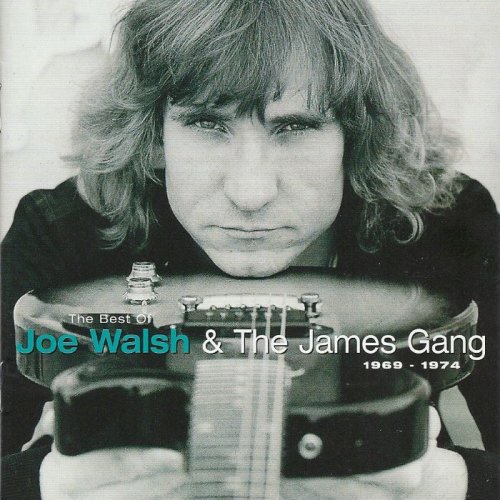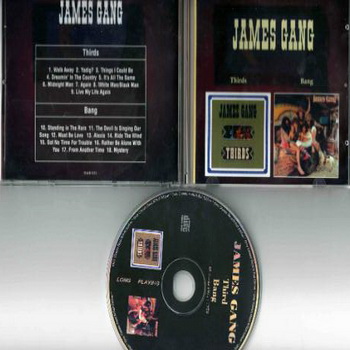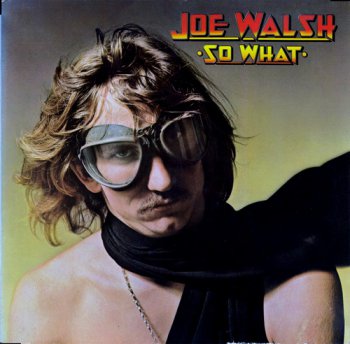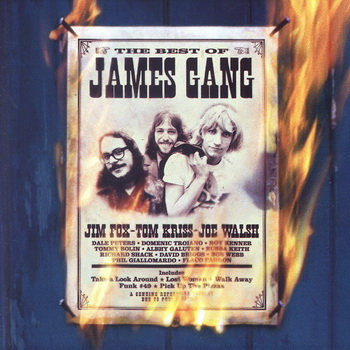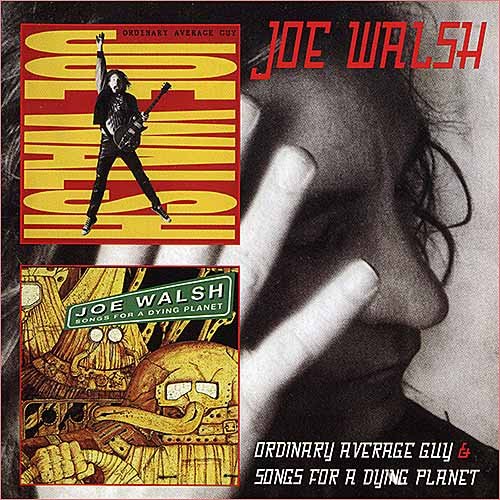Wilson Pickett - Funky Midnight Mover - The Atlantic Studio Recordings 1962-1978 (2010) 6CD
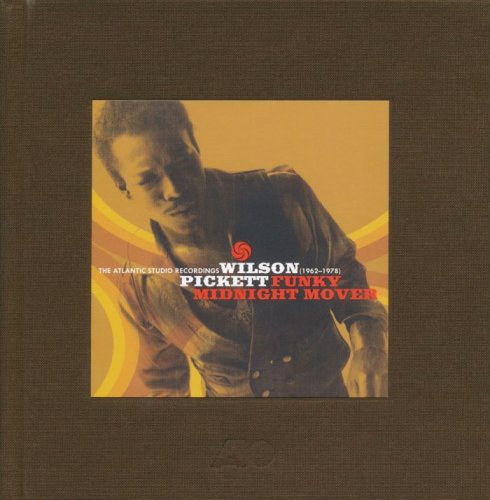
Wilson Pickett - Funky Midnight Mover - The Atlantic Studio Recordings 1962-1978 (2010) 6CD
Artist: Wilson Pickett Title Of Album: Funky Midnight Mover Year Of Release: 2010 Label (Catalog#) :Rhino Handmade RHM2 07753 Country:: USA Genre: Funk, Soul, R&B Quality: FLAC (tracks+cue,log) Bitrate: Lossless Time: 07:43:54 Full Size: 3.65Gb(+3%)(covers+book/92page) Info: wiki
14 10, 2025
Apogee - Sisyphos (1998)(2006)
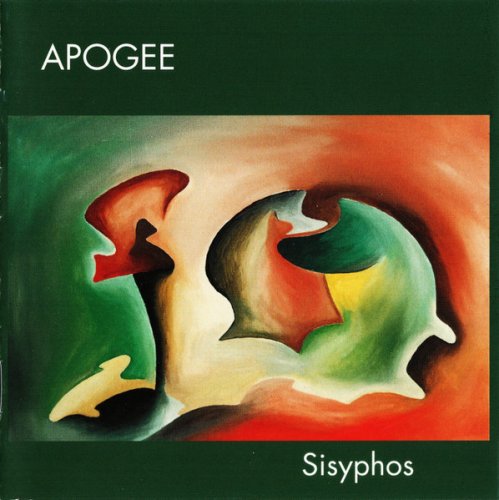
Apogee - Sisyphos (1998)(2006)
Artist: Apogee Title Of Album: Sisyphos Year Of Release: 1998/2006 Label (Catalog#) : Musea / MALS MALS 105 Country:: Germany Genre: Prog Rock, Crossover Prog Quality: WavPac (*image + .cue,log) Bitrate: Lossless Time: 63:52 Full Size: 534Mb(+3%)(covers) Info: progarchives Upload: xfile.cloud
14 10, 2025
Steve Hillage + Arzachel + Khan: 10 Albums
По многочисленным просьбам / Reupload New Links Thank your sheloshim and original ripper / uploader Steve Hillage + Arzachel + Khan: 10 Albums Performer: Steve Hillage + Arzachel (with Steve Hillage) / Khan (with Steve Hillage) Albums: -------------- ☆☆☆☆☆☆☆☆☆☆☆ -------------- Arzachel: 1969 Arzachel Akarma Records AK 184 Italy 2002 -------------- ☆☆☆☆☆☆☆☆☆☆☆ -------------- Khan: 1972 Space Shanty Rock Legend Series / Reissue 2008 Universal Music Japan Mini LP SHM-CD UICY-93833 --------------
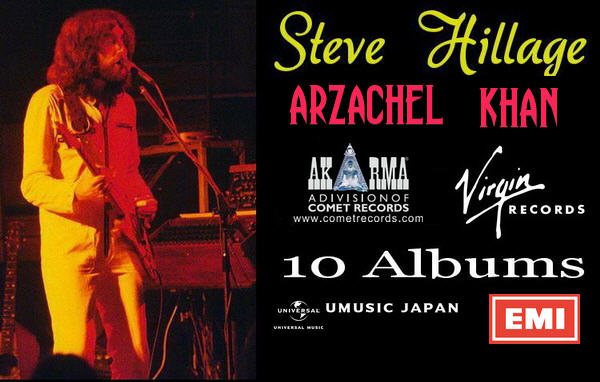
Steve Hillage + Arzachel + Khan: 10 Albums
По многочисленным просьбам / Reupload New Links Thank your sheloshim and original ripper / uploader Steve Hillage + Arzachel + Khan: 10 Albums Performer: Steve Hillage + Arzachel (with Steve Hillage) / Khan (with Steve Hillage) Albums: -------------- ☆☆☆☆☆☆☆☆☆☆☆ -------------- Arzachel: 1969 Arzachel Akarma Records AK 184 Italy 2002 -------------- ☆☆☆☆☆☆☆☆☆☆☆ -------------- Khan: 1972 Space Shanty Rock Legend Series / Reissue 2008 Universal Music Japan Mini LP SHM-CD UICY-93833 --------------
14 10, 2025
Жанры
Lossless Galaxy Release
Русская музыка
--Поп
--Рок
--Панк
--Альтернатива
--Металл
--Рэп, Хип-Хоп, R'n'B
--Джаз и Блюз
--Фолк
--Шансон, Авторская песня
--СССР
Зарубежная музыка
--Pop
--Rock
--Hard Rock
--Progressive & Art-Rock
--Pop-Rock & Soft Rock
--Instrumental Rock
--Heavy, Traditional, Industrial Metal
--Power, Gothic, Sympho Metal
--Thrash, Speed, Groove, Modern Metal
--Death, Melodic Death, Doom, Dark Metal
--Black, Pagan, Folk, Viking Metal
--Alternative
--Punk
--Disco, Eurodance
--Rap, Hip Hop, R'n'B
--Reggae, Ska, Dub
--Jazz, Blues, Soul
--Folk, Country, Ethnic
--Electronic, Ambient, New Wave
--House, Techno, Trance
Другие жанры
--New Age, Relax, Meditative & Flamenco
--Chillout, Lounge, Downtempo, Trip-Hop
--Drum & Bass, Jungle, Breakbeat, IDM
--Classical / Классическая музыка
--Soundtrack
--Музыкальные сказки
Vinyl Rip
HI-Res / DVD-Audio / DTS
--SACD
--DSD
--DVD-Audio
Сборники Lossless-Galaxy
Альбомы 2022
Альбомы 2023
Альбомы 2024
Теги
1st Press 2022 2023 2024 2025 70... AOR Black Metal Blues Blues Rock Bootleg Series Classic Rock Death Metal Discography Exclusive for Lossless-Galaxy Folk Rock Fusion Hard Rock Heavy Metal Hi-Res Japanese Edition Jazz Jazz Rock lossless Melodic Death Metal Melodic Rock Modern Electric Blues Pop Pop Rock Power Metal Prog Rock Progressive Metal Progressive Rock Psych Rock Psychedelic Rock Rock SACD Symphonic Metal Thrash Metal Дискографии от KoGGaN
Архивы
Опрос
В каком формате хотели бы видеть релизы на сайте ?
 Автор: LeddZepp, 13 марта 2022, Комментариев: 0, Просмотров: 563
Автор: LeddZepp, 13 марта 2022, Комментариев: 0, Просмотров: 563Joe Walsh (Eagles) - Barnstorm (1972)
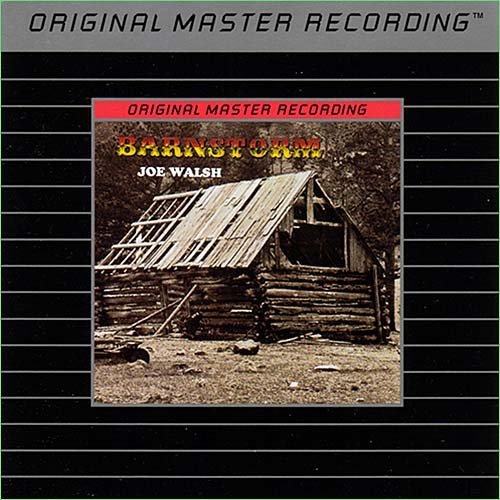
Year: October 1972 (CD 1990)
Label: Mobile Fidelity Sound Lab (U.S.), MFCD 777
Style: Pop Rock, Rock
Country: Wichita, Kansas, U.S. (November 20, 1947)
Time: 38:06
Format: Flac Tracks 16/44,1 kHz
Size: 198 Mb
Charts: Billboard Pop Albums 1973 #79 (U.S.).
Джозеф Фидлер Уолш благодаря маме-пианистке рос в окружении музыки, в школе играл на гобое, но в 10 лет услышал The Ventures - и гобой был забыт навсегда. В университете Кент, где он учился, Джо слыл уже профессионалом; он переиграл в нескольких группах. После того, как он стал свидетелем расстрела Нацгвардией безоружных студентов, протестовавших против вторжения в Камбоджу, Уолш университет бросил и с головой ушел в рок-н-ролл. Собственно, он уже играл в группе James Gang, которая была на разогреве у Cream, записала альбом и даже попала с двумя песнями в кино. Отличное было пауэр-трио, но Уолшу чего-то в нем не хватало. Он ушел в 1971-м; группа распалась шесть лет спустя.
К тому времени Уолша хорошо знали в рок-мире. Его звал в Англию Стив Марриотт - укрепить Humble Pie, пошатнувшихся после ухода Питера Фрэмптона, но у гитариста были другие планы: вместе с басистом Кенни Пасарелли и барабанщиком Джо Витале он собрал состав под названием Barnstorm. Именно в этом составе он написал и спел свою самую, наверное, популярную песню Rocky Mountain Way; она вышла на втором альбоме группы The Smoker You Drink, The Player You Get. Его, как и первый альбом группы, причисляют к дискографии самого Уолша - ну, собственно, он и вышел под его именем. Это отчасти и привело к распаду группы.
Джо продолжил карьеру как соло-артист; на следующем его альбоме So What в качестве гостей присутствовали трое участников набиравших обороты Eagles - у них с Уолшем был один импресарио, Билл Шимчик. У группы как раз были проблемы с Берни Лидоном, не выдержавшим круглогодичного рок-н-ролльного режима "запись-гастроли- вечеринки-гастроли- вечеринки-запись-далее везде". Надо понимать, что вечеринки эти были опасными для здоровья и жизни, и Лидона можно понять - но интересно, что, рассматривая вопрос о том, чтобы позвать Уолша в состав, Eagles сомневались: не слишком ли он диковат для них? Но взяли. И буквально сразу же Джо включился в работу над альбомом, которому суждено было стать Hotel California.
Нет сердца у того, кто не замирал ни разу от этой песни, при всей ее навязшести в зубах. Посмотрите концерт "Орлов" Live At the Capital Center, целиком - вы поразитесь тому, как шестеро блестящих музыкантов безо всякой специальной мишуры - света, дыма, блесток, взрывов, бэк-вокалисток, голограмм и прочего - безупречно и вдохновенно делают свое дело. И, конечно, гитарный дуэт-дуэль Уолша и Дона Фельдера, о, этот дуэт аккуратиста Дона и агрессивно-взрывного Джо… да что я вам говорю.
В 1980-м группа распалась. Джо еще за два года до этого выпустил отменный альбом ...But Seriously, Folks с песней Life’s Been Good, ироничным взглядом на рок-звездность:
Я записываю пластинки - мои фанаты не могут ждать.
Они пишут мне письма, говорят, что я великолепен!
В моем офисе на стене висят "золотые диски".
Оставь мне сообщение, может, я и перезвоню...
"Орлов" подкосил этот образ жизни - а для Джо он был предметом иронии, не более того. Да, он тоже был звездой, и наверняка ему это нравилось, но у него хватило иронии взглянуть на себя со стороны и посмеяться.
После Eagles он больше не играл в группах - вплоть до их воссоединения в 1993-м. Выпустил несколько сольных альбомов разной степени удачности. Крутил роман с вокалисткой Fleetwod Mac Стиви Никс, диджеил на радиостанции KLOS в Лос-Анджелесе... Впрочем, нет! Он же был участником австралийской супергруппы The Party Boys - в этом рок-карнавале принимали, помимо него и основателей, Пола Кристи и Кевина Борича, такие монстры, как Эрик Бердон, Грэм Боннет, Алан Ланкастер и много кто еще. Потом был состав The Best, о котором мало что известно, даром что было это в 1990-м, а играли там Джон Энтуистл из The Who, Саймон Филипс из Toto, Кит Эмерсон - понятно откуда, Джефф "Сканк" Бакстер из The Doobie Brothers, ну и наш герой плюс вокалист Рик Ливингстон, канадец. Группа отыграла тур в Японии и исчезла, как не было... Что ж, в истории рока были и похлеще эксцессы.
Ну и нельзя забыть его нежную дружбу с Ринго Старром. Они женаты на сестрах - Ринго на актрисе Барбаре Бах, Джо на ее сестре Марджори (это его пятая жена). Уолш дважды принимал участие в передвижном рок-н-ролльном цирке Ringo’s All-Starr Band, а в 2014-м - в блистательном телетрибьюте "Ночь, которая изменила Америку: "Грэмми" салютует "Битлз". Удивительно, сколько серьезности и трепета оказалось в этом разбитном шутнике и хулигане.
О Джо Уолше можно рассказывать еще очень и очень долго - о том, как он "слез" с алкоголя и наркотиков, пережив некое откровение в маорийском святилище в Новой Зеландии; как он борется за сохранение природы острова Санта-Крус, о его пародийных попытках участвовать в президентских выборах и прочих серьезных и не очень занятиях. Они могут добавить что-то к его образу, но и без того нам понятно, насколько беднее стал бы рок-н-ролл без виртуозного гитариста, саркастического острослова, доктора honoris causa Кентского университета Джозефа Фидлера Уолша - нынешнего именинника. Многая ему и благая лета!
(salonav.com/arch/2019/11/dzho-uolsh-chelovek-kotoryj-smeyalsya-nad-rok-zvezdami.htm)
01. Here We Go (04:59)
02. Midnight Visitor (03:16)
03. One And One (01:15)
04. Giant Bohemoth (04:19)
05. Mother Says (06:27)
06. Birdcall Morning (03:43)
07. Home (02:53)
08. I'll Tell The World (03:56)
09. Turn To Stone (05:20)
10. Comin' Down (01:53)






При желании можно посмотреть все мои публикации на сайте. Приятного прослушивания. Жмём и смотрим (Click to see all of my posts)!
Внимание! У Вас нет прав для просмотра скрытого текста.
Похожие новости:
Комментарии отсутствуют
Добавить комментарий!
Информация
Посетители, находящиеся в группе Гости, не могут оставлять комментарии к данной публикации.

